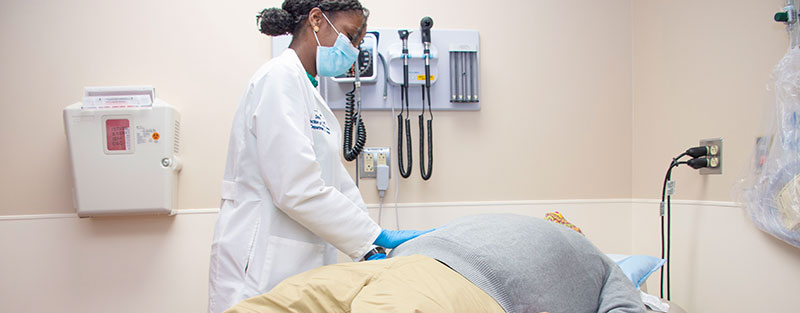Stomach Cancer Treatment
Surgery is the most common form of treatment for stomach cancer

credit: Chris Hedly
The stage of the cancer (how far it's spread beyond the stomach wall) will decide the type of surgery needed. The type of surgery used to treat stomach cancer is called a gastrectomy. A gastrectomy removes some or all of the stomach, depending on the extent of the cancer.
Types of stomach cancer surgery
Robot-assisted surgery: this type of surgery may also be called "minimally invasive surgery." In this type of surgery, a skilled surgeon controls slender, telescope-like instruments from a console near the patient. At the console, the surgeon can view the surgical field on a high definition screen in three dimensions. With the robot acting as an extension of the surgeon’s hands, surgery can be performed with greater precision and accuracy. Even some complex operations can be performed through small incisions, resulting in less trauma to the body.
Endoscopic mucosal resection (EMR) and endoscopic submucosal dissection (ESD): These types of surgeries are used to treat early-stage (the cancer hasn't spread beyond the stomach wall and may not be deep within the stomach wall). In this case, the surgeon goes in an removes the cancer.
Chemotherapy: This is a type of drug therapy and normally is used along with surgery. Chemotherapy can be given as a pill or put into the body using a vein (called “infusion”). For some stomach cancer patients, “regional chemotherapy” can be used. Depending on the stage of the stomach cancer, doctors may suggest:
- Intraperitoneal (IP) chemotherapy: Cancer-fighting drugs are put into the peritoneal cavity (the space between the abdominal organs and the membrane that holds them together) using a thin tube.
- Hyperthermic Intraperitoneal chemotherapy (HIPEC): this is very similar to IP chemotherapy, except the chemotherapy is sent directly into the peritoneal cavity at the time of surgery.
Radiation Therapy: this cancer treatment can be done at the same time as chemotherapy (called chemo-radiation) or separately. High-energy radiation waves are focused at the area of cancer. These waves either kill the cancer cells or keep them from growing.
Targeted Therapy: Intestinal stomach cancer has specific changes (mutations) that can be identified. Researchers have created drugs that kill only the cells with the mutations. Targeted therapy is helpful because it does less harm because it only kills the cancer cells.
Immunotherapy: This treatment teaches the patient’s immune system to fight the cancer, just like it would fight any other infection. Drugs can be used to strengthen the patient’s immune system to make it easier for them to kill the stomach cancer cells.
Stomach Cancer Treatment by Stage
Early Stage Stomach Cancer
If stomach cancers have not grown or spread beyond the first layer of the stomach wall, it's considered early stage. Treatment for this is endoscopic resection (removal). Another option for patients able and willing to have surgery is gastrectomy with lymph node dissection.
Locoregional Stomach Cancer
When stomach cancer grows beyond the first layer of the stomach wall (mucosa), it's called locoregional stomach cancer. There may be cancer in nearby lymph nodes, but not in areas far from the stomach.
Surgery may be a treatment option for these cancers for patients in good overall health and if the location and extent of the cancer makes it possible. In some cases, chemotherapy is given before and after surgery. Chemoradiation may also be given before surgery.
Metastatic Stomach Cancer
When cancer cells spread to distant parts of the body and form new tumors, it's called metastatic. Metastatic stomach cancer normally cannot be cured.
Treatment options are based on overall health in terms of being able to every day tasks and activities. Supportive care is an option for all metastatic stomach cancers. Chemoradiation and systemic therapy may also be options.
Make an appointment/referral
To make an appointment, please contact 734-647-8902. If you would like to refer a patient, please contact our M-LINE service: 800-962-3555. You can also visit our Appointments webpage.
Still have questions?
The nurses at Cancer AnswerLine™ have answers. Call 800-865-1125 and you'll get a personal response from one of our registered nurses, who have years of experience in caring for people with cancer.
